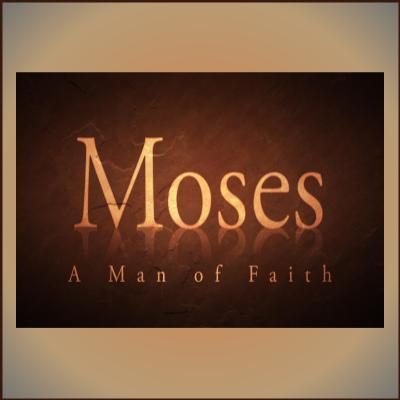SERMON SUMMARY
APPLICATION / CHALLENGE
Today we are beginning a new series on an individual who has impacted all of us—Moses. He hand-delivered the Ten Commandments, wrote the first five books of the Bible, and emancipated the Jewish people from slavery! Despite all that he accomplished, Moses was far from perfect. He had faults and failures just like you and me. We trace Moses’ story back to a man named Abraham. Abraham was called by God to leave home without knowing what came next. God told him that he would be the Father of a great nation. He trusted God, and God fulfilled his promise. Fast forward through his son Isaac, grandson Jacob, and great grandson Joseph and his famous multi-colored coat. His jealous brothers sold him into slavery, and ultimately prison, in Egypt. But the Lord was with Joseph, and he ended up becoming second in command in Egypt—and saving his whole extended family (and the nation of Egypt) from famine. Fast forward 400 years, and Joseph’s family of 70 had become almost three million. Egyptian officials feared that the Hebrews might become too strong, and decided that every newborn Hebrew boy should be drowned in the Nile. Moses was one of those boys.
Faith is not just something that you think or feel—faith is an action that you take, and Moses’ parents responded in faith to this threat (Hebrews 11:23–27). For his first few months, they hid Moses at home. When they needed a new plan, they water-proofed basket and floated him down the Nile, where they knew Pharaoh’s daughter came and bathed every day. Moses’ older sister, Miriam, watched, and when Pharaoh’s daughter found him, Miriam offered to find someone to care for the baby—Moses’ own mother! Moses’ story shows that we don’t have to surrender our children to a God-rejecting world. (That’s why we offer parenting workshops, suggest good books, and connect you with mentors.) Parenting is a journey, from being in complete control to being consultants to our young adults. We do this through God’s Word (John 17:14-17). God’s plan is that Christian homes be a safe haven in the midst of this world’s chaos.
Back to Moses: he is being raised in Pharaoh’s household, but learning about his Jewish heritage—from his own mom. There comes a time in all of our lives when we have to begin making our own choices (Hebrews 11:23-27). No matter our up-bringing, each of us makes choices; we each are as close to God as we really want to be. Moses—and we—have to answer the question of identity (v. 24): “Who am I? With what tribe will I identify, and how will that decision impact my life?” Moses began to see himself as the child of the living Most High God, for whom, nothing is impossible! And that changed everything! We also have to answer the question of purpose (v. 26). Why was Moses able to let go of the treasures of Egypt? Because he had a higher purpose and calling (v. 27). He wanted God to smile upon his life. Your vision of what you want changes your values and priorities. At TCC, our purpose is to transform ordinary people into extraordinary followers of Jesus Christ, and that sets our values and priorities. It is possible for a church to be busy—but ineffective at fulfilling its purpose. Moses rejected popularity, pleasure, and possessions—the same temptations that we face. Sin does bring pleasure— but it doesn’t last. We reap what we sow. Moses chose his own people over the pleasure of sin because he understood its pleasure was. He also understood that the pursuit of sinful pleasure did not align with the purpose for which God designed him. Moses chose God’s peace over possessions (v. 26). Moses rejected worldly popularity, worldly pleasure and worldly possessions, and all of that was determined by his vision, which determined his values, which determined his priorities. Finally, Moses answered the question of cost —the question of “how far I am willing to go to live out my purpose?” (V. 27). On this question, Moses had a false start (more on that next week!)—but what was it that inspired him to give it another try? Moses desired the approval of the living but invisible God more than he feared the wrath of some earthly king.
Someday you too may be called upon by God to make a costly choice. To prepare for that moment, we must answer: [1] Who am I? [2] Why am I here? What am I living for?, and [3] “What price am I willing to pay?”
TAKE ONE STEP
Each week, write down one doable concrete step of obedience, small or large, that you will put into practice this week. (James 1:22: “But prove yourselves doers of the word, and not merely hearers who delude themselves.”)


